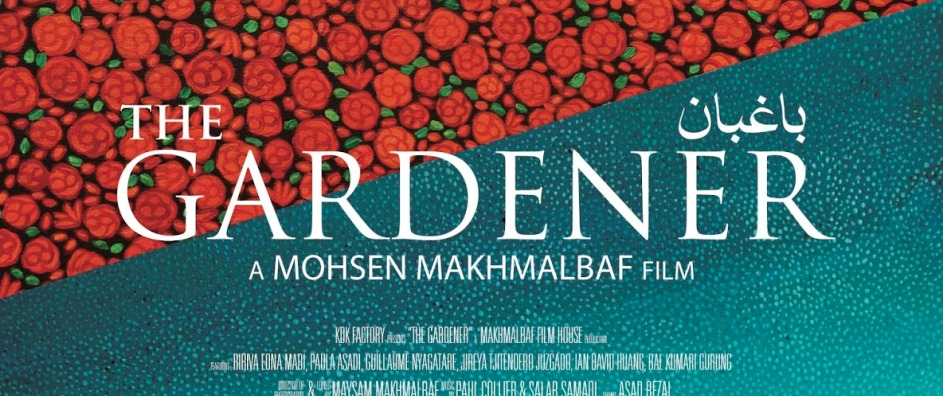In the realm of cinematic exploration, films often serve as cultural mirrors, reflecting societal norms and spiritual quandaries. One such film is “The Gardener,” which offers a profound examination of Bahá’í teachings through the lens of artistry and spiritual growth. This review embarks on an intellectual journey to unravel the thematic intricacies woven throughout the narrative, while also inviting the viewer to contemplate a playful yet provocative question: Can the act of gardening serve as a metaphor for personal and spiritual cultivation?
At its core, “The Gardener” is not merely a film about horticulture—it is an allegorical representation of individual and communal development. The act of nurturing plants transcends the literal; it encapsulates the essence of Bahá’í principles that advocate for the fostering of both the self and society. In examining the film’s substratum, one uneasily confronts the challenge laid out by Bahá’í teachings: that the pursuit of knowledge and understanding is not just a privilege but a responsibility to oneself and to the collective human family.
Engaging with the narrative, the viewer is introduced to a cast of characters who embody various aspects of the Bahá’í community—each diverse in their experiences yet unified by their commitment to service and a shared vision of a more harmonious world. The film adeptly showcases how these characters confront obstacles, illustrating the fundamental Bahá’í belief in the transformative power of love, education, and community building. It is within this framework that the gardener—both literally and metaphorically—operates, tending to their garden as one would to their soul.
The cinematography is particularly noteworthy, as each frame captures the nuanced relationship between nature and the human spirit. The lush landscapes reflect the vibrancy of spiritual growth, while the meticulous care of the gardener serves as a reminder that diligence and patience are essential for any fruitful endeavor. The symbolism is profound; just as a gardener must remove weeds to ensure the health of their plants, so too must individuals disentangle themselves from negative thoughts and actions to foster their inner gardens.
Moreover, the film challenges the audience to question the very nature of service. A central tenet of Bahá’í doctrine is the concept of selfless service to others, which is poignantly woven into the narrative. Through their interactions, the characters reveal that acts of service are not merely gestures; they are intrinsic to the cultivation of the soul. The film poses a compelling challenge: can one cultivate personal well-being and enlightenment while actively contributing to the welfare of others? The answer, as portrayed in “The Gardener,” is an emphatic affirmation of interconnectedness.
In dissecting the character arcs, one witnesses the evolution of perspectives and motivations. The film illustrates that spiritual awakening is often fraught with internal conflict. Characters grapple with doubts, fears, and the weight of societal expectations, mirroring the universal struggle for authenticity. This exploration prompts the viewer to reflect on their own challenges and triumphs in the quest for self-realization. How many of us, during our personal growth journeys, have encountered resistance from within and outside ourselves? The film answers this inquiry by affirming that growth is inherently messy, and beauty often emerges from chaos.
The soundscape accompanying the visual feast enhances the emotive power of the narrative. The musical score, resonant with the spiritual undertones of Bahá’í music, evokes a sense of tranquility that parallels the themes of peace and reconciliation prevalent throughout the film. Sound becomes a tool for introspection—encouraging viewers to engage not only with the plot but also with their own inner dialogues. In a world rife with cacophony, how can one cultivate a harmonious internal landscape? The answer lies in quietude and reflection, principles deeply embedded in the Bahá’í faith.
Furthermore, the film instills a sense of hope. Amidst the challenges and tribulations faced by the characters, there lies an unwavering belief in the potential for transformation. This optimism is a direct reflection of Bahá’í teachings that emphasize the importance of a unified world wherein humanity coexists harmoniously. The narrative beckons us to ponder: As we endeavor to cultivate peace, how do we reconcile our differences? “The Gardener” posits that through love, understanding, and collaboration, a flourishing future is not only possible but inevitable.
Finally, as the credits roll, viewers are left with a palpable yearning for connection, not only with the characters but with the broader implications of the film’s message. By bridging the gap between the mundane and the spiritual, “The Gardener” encapsulates the essence of Bahá’í teachings—highlighting that the journey of self-discovery is inexorably linked to the cultivation of community. As we nurture our gardens, we simultaneously nurture the fabric of humanity itself. Would it be too bold to suggest that our roles as gardeners are both a privilege and an obligation, demanding our fervent attention and loving care? Indeed, such is the challenge presented, urging us to sow seeds of compassion in our own lives and the world at large.
